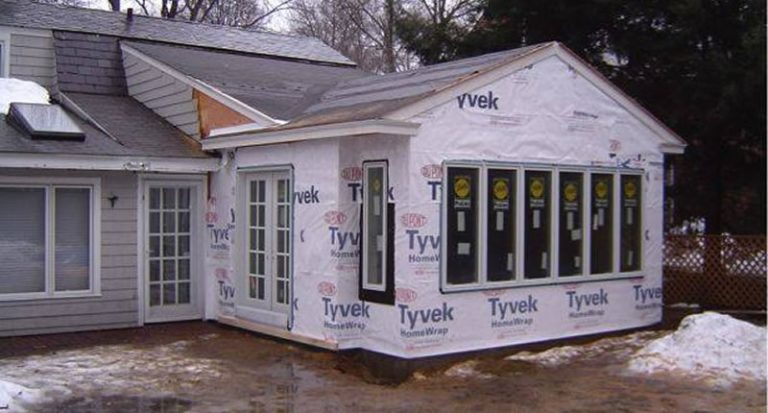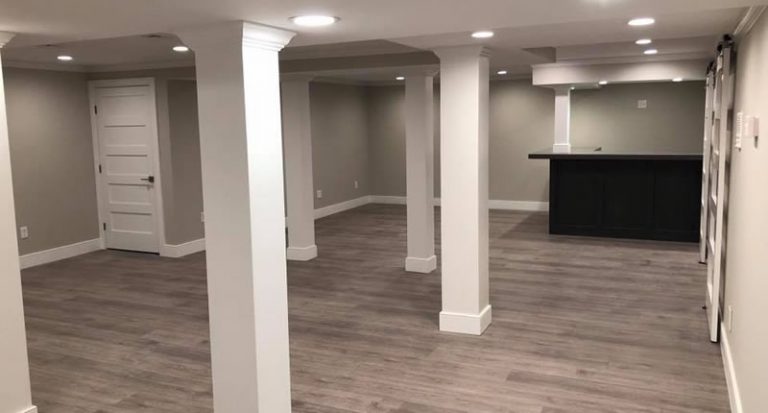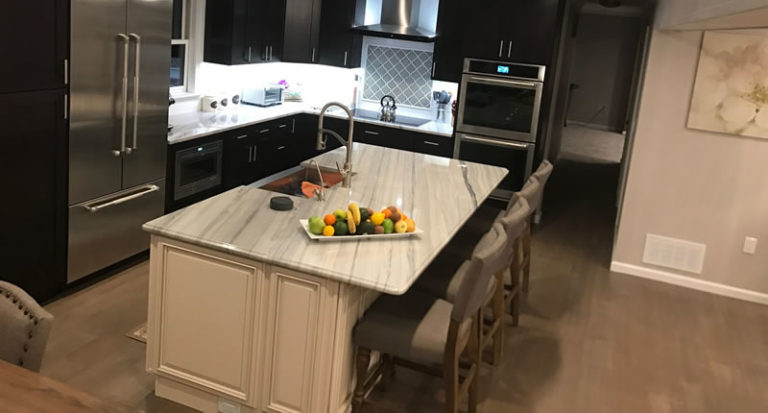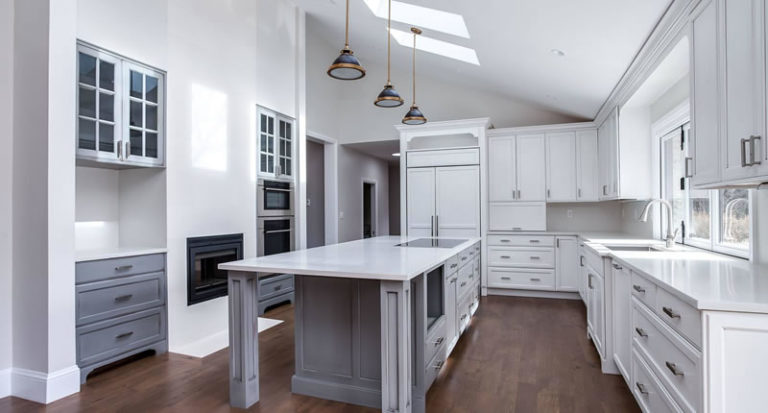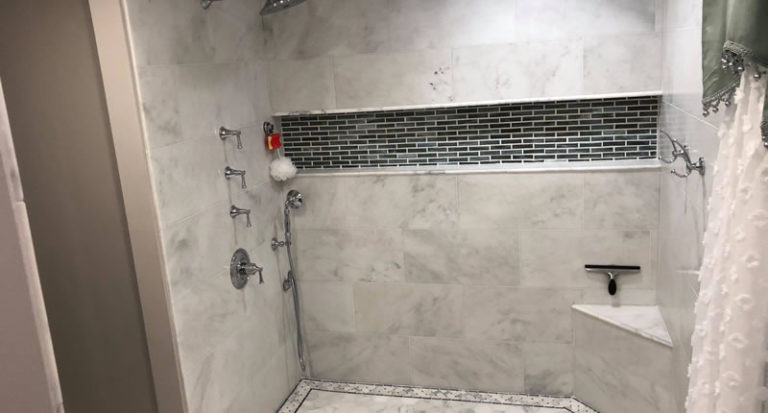Questions To Ask Before Remodeling Your Kitchen
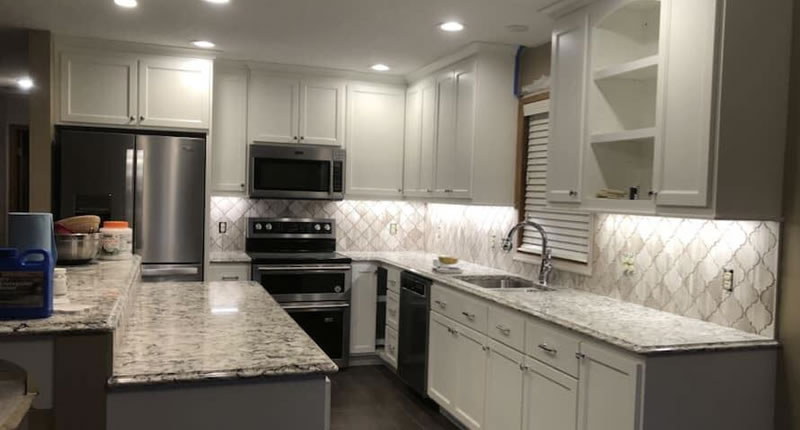
Questions To Ask Before Remodeling Your Kitchen
Deciding to remodel your kitchen is the easy part. For most homeowners, knowing exactly where to start is the biggest struggle. Research and inspiration can become never-ending given the resources and technology of today. There seems to be a new “next big thing” every week and for most of us, it’s hard to keep up. Take your time and enjoy the dreaming stage, but once you’ve pondered long enough, you can figure out what your first steps should be by asking yourself these questions.
WHY ARE YOU RENOVATING YOUR KITCHEN?
Are you upgrading in the hopes of selling? Are the finishings and appliances outdated or on their last legs? Is it finally time for the kitchen of your dreams?
Updating a kitchen can greatly improve the marketability of your home, but requires a different approach than one that is for your personal enjoyment. You will get more return on your investment if you keep things simple. Aim for giving things a facelift with emphasis on obvious issues such as cabinet doors, countertops, and appliances. You want to make sure the changes add to your home’s charm rather than comprising a future sale. A realtor or an experienced remodeling contractor are great resources to help you determine where to put your focus — and your dollar!
If the goal is to create a kitchen that perfectly reflects your style and meets your needs, make the effort to customize it as much as you can. When the renovation becomes more personal, the list of wants and needs can feel overwhelming and limitless. While these types of renovations are a great time to add personality, it will be helpful to aim for a general appeal when purchasing big-ticket items. Your tastes may change over time or selling in the future may be inevitable and you want to avoid having to replace expensive pieces. A detailed budget can help narrow things down.
WHAT IS YOUR BUDGET?
Whether you’ve been saving a big nest egg for years or have scraped up just enough or you are paying for the remodel with a HELOC, it’s important to break down where you plan to allocate your funds. Use a budget as an interactive tool.
Not sure where to start? A good rule of thumb is to invest approximately 10 percent of the home’s overall value into your kitchen. Be completely honest about what you need and what you can actually afford to prevent future headaches. Plan for where you want to splurge and where you think you can afford to save.
Don’t cut costs. Working around existing pieces or infrastructure can sometimes cost more. Let your designer or contractor determine what is worth keeping.
Build in a buffer. Your budget shouldn’t fit your planned expenses exactly. Experts agree that your project will likely cost more than you anticipate and take longer than expected. Budgeting in a cushion of 10 to 20 percent will reduce the pain of inevitable bumps in the road and regardless of how amazing your contractor is, these overruns can still happen.
WHO’S DOING THE WORK?
Both the goal and the budget are major considerations when deciding whether your kitchen renovation will be a do-it-yourself endeavor or will require the assistance of a professional.
Designing your own kitchen may be the best option if a designer doesn’t fit your budget, you are simply updating materials and appliances, or you are using the same layout as before. Perhaps you feel comfortable enough hiring out trades, purchasing product on your own or even taking up the tools yourself. Maybe your project will be a combination of the three. To help you decide whether or not you want to tackle things solo, consider the following:
1. What is the timeline? Lining up permits, trades, and deliveries takes skill and time. Make sure you are prepared for the commitment required to coordinate these things. If you are doing the physical labour as well, it’s a good idea to evaluate where it’s worth you giving your time and where your money is better put towards having someone else do it.
2. Do you have the necessary tools? Kitchen remodels will require a lot of tools. The cost of buying your own will quickly eat up any savings you may have accumulated by going the DIY route. Borrowing and renting are great options to fill any gaps in your tool belt. Just make sure to account for the cost in both your budget and timeline.
3. How skilled are you? Some projects like electrical work and plumbing require specific knowledge. Mistakes in these areas can be very costly.
4. Have you looked into hiring someone? Many people assume that hiring a designer is out of their price range, and that may be the case, but inquiring about services and prices will ensure that you don’t miss out on an opportunity you may well be able to afford.
A professional with a fresh set of eyes, knowledge of the latest design developments, and years of experience can improve your kitchen in ways you wouldn’t imagine. Their services offer everything from helping you choose materials, fixtures, lighting, as well as managing the project.
You can feel confident about a designer’s professionalism by asking them these questions:
1. Have they practiced in your area for several years? That’s a great indication that they don’t overcharge or they wouldn’t still be in business.
2. Have you been invited to see previous work? Do they offer many references?
3. Is any of their work showcased in local show homes or community projects?
WHERE CAN I IMPROVE MY KITCHEN LAYOUT?
Improving your kitchen’s layout may be as simple as installing more storage to declutter your counter and gain already existing usable space. Or, it may involve a complete gut job and starting from scratch in order to make things work.
Now is the time to really evaluate how functional your kitchen is. Is there something about it that you love and don’t want to change, make a note. Does finding items in your pantry feel like mission impossible? Write that down. Keeping a list will keep you from feeling overwhelmed when looking at the new kitchen innovations available.
If a design element, like a big kitchen island or pantry wall, has been on your wishlist for years, look for room to expand into neighboring rooms to make it happen. There may be available space hiding in plain sight.
Determine your kitchen’s intended use and make that the guiding principle for making decisions. If you want your kitchen to be primarily for food preparation, choose function above all else. If the kitchen is more of a gathering place for friends and family, you may want a more multi-functional approach to make it both inviting and comfortable enough to fit everyone and efficient enough to work in. The details of the layout, appliances, storage solutions and work areas will be different depending on how you plan to spend your time in the kitchen.
Whether you decide to add square footage to your kitchen footprint or keep the one you have, these tips will make sure your kitchen layout works for years to come:
1. Keep your working triangle (the area between the refrigerator, cooktop, and sink) low traffic. You want to be able to move freely between these areas while preparing food.
2. If you have a kitchen island and want to have seating around it, you will want to aim for at least 5 feet of clearance for the area to be used comfortably.
3. Put working space around your appliances. Cooktops need room for pot handles to be turned in to avoid a fire hazard and refrigerators are much easier to maneuver when there’s a landing spot for taking things in and out.
4. Pick out your appliances first. You don’t have to purchase them first but should have an idea of their size requirements before you start designing the cabinets. It is easier to design the rest of the kitchen around appliance measurements than to find an appliance to match odd specifications.
5. Make sure you have appropriate power sources for relocated or new appliances. There’s nothing worse than not being able to plug in your refrigerator.
6. Evaluate the lighting layout in relation to your new kitchen layout. Does the task lighting line up with the task area? Can you add more types of lighting to change the ambiance?
Now that you have some of the basics covered, you’re ready to get into the nitty-gritty details and take that first step, whether meeting with a professional or planning a trip to the local home improvement store.
Gomes Group Limited Specializes In Kitchen Remodeling
 Do you have questions about your upcoming kitchen remodel or renovation? Are you looking to team up with a qualified contractor who is capable of transforming your kitchen space into that dream kitchen you’ve found on Pinterest, or in a home remodeling magazine? At Gomes Group Limiteds we’ve been remodeling kitchens for many years. We specialize in high-end, and luxury kitchen remodeling projects. We can take your space and build it into something beautiful you, your family, and your guests will enjoy for many years.
Do you have questions about your upcoming kitchen remodel or renovation? Are you looking to team up with a qualified contractor who is capable of transforming your kitchen space into that dream kitchen you’ve found on Pinterest, or in a home remodeling magazine? At Gomes Group Limiteds we’ve been remodeling kitchens for many years. We specialize in high-end, and luxury kitchen remodeling projects. We can take your space and build it into something beautiful you, your family, and your guests will enjoy for many years.
The Gomes Group Limited Team services Hunterdon County and the surrounding areas of New Jersey.
Are you ready to meet with us to discuss your kitchen remodeling project? We’d love to schedule a consultation with and we’re excited to share our kitchen remodeling ideas with you. Give us a call at (908) 674-2441 or fill out our contact form and we’ll get right back to you.

